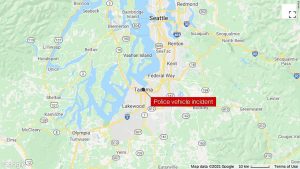Evolutionary trial and error, mutation is fundamental to viruses, and the oldest known ones date back an estimated 310 million years ago, when the ancient symbiotic bracoviruses infected wasps.
“Dogs bark, ducks quack, viruses mutate,” said Dr. Jay Varma, New York City Mayor Bill de Blasio’s senior adviser for the coronavirus pandemic. “That’s what viruses do.”
“The more infections that occur in humans, the more likely it is the virus will mutate,” Varma said, outlining why it’s important to minimize how many people are infected.
The most common ancestor of coronaviruses existed about 10,000 years ago, a relatively young age, according to a 2013 article published in the Journal of Virology.
Some viruses pretty much go away, but others continue to spread indefinitely.
In the case of the coronavirus, Varma said, it’s possible COVID-19 could become a disease akin to influenza and the seasonal flu, for which an annual shot is updated based on mutations, that society must contend with indefinitely.
Why do viruses mutate?
After invading the body, viruses begin to make copies of themselves.
“It’s just like copying a manuscript. Sometimes there’s typos. The virus just makes random mistakes when it gets copied,” Bettie Steinberg, a virologist at Northwell Health’s Feinstein Institutes for Medical Research, told National Public Radio.
Those variants often don’t matter, and may be weaker. But sometimes variants can strengthen the virus, providing them an advantage over other versions.
What are some of the notable variants?
Even the most dominant form of the coronavirus is a variant, according to the World Health Organization.
The initial virus was identified in Wuhan, China, but since June the D614G mutation — identified in late January or early February 2020 — has become the dominant variant circulating.
Spreading quickly and more easily than other variants, B.1.1.7 — commonly known as the United Kingdom variant — was first detected in September and is now prevalent in London and southeast England, according to the U.S. Centers for Disease Control and Prevention. The variant also has been detected in numerous places around the world, including the United States and Canada.
Other variants include one connected to South Africa, called 1.351, and another connected to Brazil, called P.1, the CDC says. The South Africa variant was first detected in October and shares some mutations with the one from the United Kingdom.
Neither of these variants has yet been detected in the U.S., per the CDC.
Are the variants more dangerous?
For weeks, there have been reports of an absence of evidence that the U.K. variant causes more severe illness or increases an individual’s death risk. But on Friday, British officials warned, tentatively, that the variant may be more lethal than previous ones. The Wall Street Journal reported that the fatality risk was boosted by 30% to 40 %.
Even if the variant proves only as deadly as the more common variant, the more people infected with a potentially fatal virus, the greater the number of total deaths; the more people in hospitals, the more likely that hospitals will be overwhelmed, according to Dr. David Hirschwerk, an infectious disease specialist with Northwell Health. Overwhelmed hospitals must then limit who is treated.
Speaking Thursday, Dr. Anthony Fauci, the nation’s top infectious-disease doctor, said that even if treatments and vaccines for the new variants proved less effective, the vaccines created a “cushion effect.” in which the new strains would only somewhat diminish the vaccine’s efficacy.
He called the situation with variants “concerning,” but said it’s “nonetheless not something that we don’t think we can handle.
Have any variants been detected on Long Island?
Yes, the U.K. variant was detected earlier this month in Suffolk and Nassau counties, but only in a handful of cases. It’s also been detected throughout New York City and the state. So far, there are at least 4 cases in Suffolk and 2 in Nassau, according to figures released this month by Gov. Andrew M. Cuomo’s office.
Does the coronavirus vaccine protect you from variants?
On its webpage about new variants, the CDC reported: “Scientists are working to learn … whether currently authorized vaccines will protect people against them.”
But the CDC, referencing the spikes — coronas — the virus uses to attach itself to human cells, said: “The virus would likely need to accumulate multiple mutations in the spike protein to evade immunity induced by vaccines or by natural infection.”
A study posted Jan. 19 in bioRxiv — research that still needs to be finalized and that has not been peer-reviewed — found that the Pfizer vaccine was just as effective in protecting against the U.K. variant as the dominant one. And in late December, Moderna, the company behind the other vaccine approved in the U.S., says it expects its shot to be effective against the U.K. variant too.
Referring to the South Africa variant, another preliminary study released earlier this month found that a research finding “may foreshadow reduced efficacy of current spike-based vaccines,” the kind that were currently used in the U.S. and much of the world.
According to NPR, mutations including the Brazil variant, could decrease the efficacy of the vaccines.
Do we need to take additional measures to protect ourselves from the variants?
No, according to medical advice posted by Ohio State University’s Wexner Medical Center. The same precautions remain as earlier in the pandemic: observe social distance, wear masks and wash hands frequently. People should avoid large gatherings and isolate if they’re feeling sick, have received a positive COVID-19 test, have traveled to a coronavirus hot spot, or have reason to believe they’ve been exposed to the virus.



















